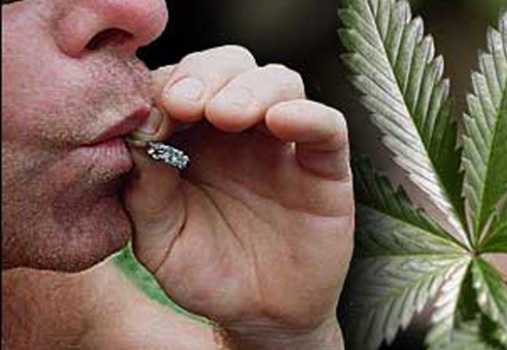Medical study reveals no lung damage from casual marijuana smoking

In a major milestone for advocates of marijuana legalization, The Journal of the American Medical Association has published the results of a study which found that casual marijuana use does not harm lung function.
It was just a few months ago in October that the California Medical Association adopted a position urging the legalization of marijuana at its annual meeting. At the time, I reported that the California Medical Association acknowledged in its position that marijuana carries health risks, not unlike the use of nicotine and alcohol, but qualified that it should also be legal and regulated like nicotine and alcohol, arguing that the effects of prohibition have caused more harm to public health and families than the potential risks of marijuana use.
Even if you don't completely agree with it, that position seems reasonable enough, and it's a position that more and more health experts and even law enforcement officials are beginning to adopt. But, the findings in this newly-published study indicate that smoking marijuana doesn't even carry the same health risks as smoking tobacco cigarettes, which is legal and regulated in the United States.
The study, which tracked and tested over 5,000 men and women for twenty years between 1985 and 2006, found that marijuana users who smoke an entire joint a day for seven years, or one joint a week for twenty years did not exhibit any decrease in lung function as measured by lung airflow and lung volume. And get this: casual "pot" users actually exhibited a small, but statistically significant increase in lung function.
According to one of the study's co-authors:
"At levels of marijuana exposure commonly seen in Americans, occasional marijuana use was associated with increases in lung air flow rates and increases in lung capacity."
The researchers speculate that marijuana users, who (with the exception of Bill Clinton) tend to inhale deeply when they smoke it, might be inadvertently exercising and strengthening their lungs. That, along with the anti-inflammatory effects of THC, the psychoactive ingredient in marijuana plants, might be keeping the lungs of "pot" smokers in good shape while their tobacco-smoking counterparts suffered decreased lung function as this and many other studies attest.
But despite these results, one writer at the Los Angeles Times predicts that the study "probably will not change minds as to whether the drug should be legalized." The writer included arguments that marijuana can still have unhealthy effects on the lungs at higher rates of use, and can affect other aspects of health negatively, especially brain development in adolescents, but did not directly support the assertion that this new study is unlikely to change other people's minds.
The American Medical Association published the study in the January 11th edition of its journal, the same day that the Mexican government updated its death toll figures from the war on drugs, "reporting that 47,515 people had been killed in drug-related violence since President Felipe Calderón began a military assault on criminal cartels in late 2006." Critics of U.S. drug prohibition argue that the violence in Mexico is a direct result of U.S. prohibition measures, which create a black market for marijuana, a black market that Mexican criminal cartels have found lucrative, using their profits to purchase more weapons and engage in more criminal-- often violent-- activity. To borrow a common argument from Second Amendment activists: If you outlaw the sale of marijuana, only outlaws will profit from the sale of marijuana.
The coincidence of the AMA-published study and the announcement of the Mexican government's new death toll figures is darkly poetic. While moderate marijuana use appears to do no long term damage to users' lungs, prohibiting marijuana use by law appears to continue doing long term damage to the lives, safety, and stability of the Mexican people. All of this new information will give Californians a lot to consider as three new proposals to lift or soften marijuana prohibition make their way through the petition process and toward the 2012 ballot in November.




